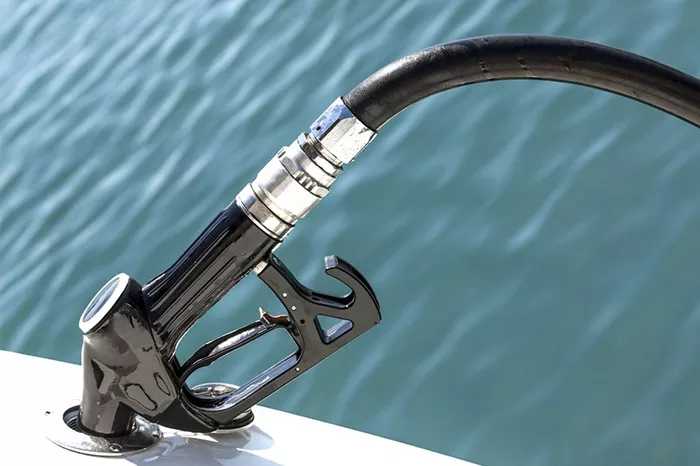Marine gasoline plays a crucial role in powering a wide range of watercraft, from small recreational boats to high-performance marine engines. While often compared to automotive gasoline, marine gasoline has distinct properties and formulations designed to meet the unique demands of marine environments. Understanding its characteristics, benefits, and proper usage is essential for boat owners and marine professionals.
What is Marine Gasoline
Marine gasoline, often referred to as boat fuel, is a type of gasoline formulated specifically for marine engines. It differs from automotive gasoline in several ways, particularly in terms of additives, ethanol content, and stability.
Composition of Marine Gasoline
Marine gasoline consists of hydrocarbons derived from crude oil through a refining process. It contains additives to improve engine performance and protect against the harsh marine environment. The key components of marine gasoline include:
- Base gasoline – A refined petroleum product that serves as the primary energy source.
- Additives – Include detergents, stabilizers, and anti-corrosion agents.
- Ethanol content – Typically lower than automotive gasoline to reduce water absorption.
Types of Marine Gasoline
Different types of marine gasoline are available, depending on engine type and fuel requirements.
Regular Marine Gasoline (87 Octane)
This fuel is suitable for low-performance outboard motors and small boats with basic fuel requirements.
Mid-Grade Marine Gasoline (89-90 Octane)
This type of marine gasoline is used in boats that require better fuel efficiency and slightly higher performance.
Premium Marine Gasoline (91+ Octane)
High-performance marine engines, such as those in racing boats and luxury yachts, require premium marine gasoline for optimal combustion and power output.
Differences Between Marine Gasoline and Automotive Gasoline
While marine and automotive gasoline share similarities, marine gasoline is formulated to withstand moisture and corrosion risks commonly found in marine environments. Key differences include:
Moisture Resistance
Marine gasoline contains anti-corrosion additives to protect engines from moisture-related damage.
Ethanol Content
Most marine gasoline contains little to no ethanol to prevent water absorption, which can cause phase separation and engine damage.
Stability
Marine gasoline has a longer shelf life due to stabilizers that reduce fuel degradation over time.
Importance of Using the Right Marine Gasoline
Using the correct marine gasoline is critical for engine performance, fuel efficiency, and longevity.
Preventing Engine Damage
Low-quality or improper gasoline can lead to engine knocking, fuel line blockages, and increased wear on engine components.
Enhancing Fuel Efficiency
The right marine gasoline optimizes combustion, reducing fuel consumption and improving engine power.
Minimizing Environmental Impact
Proper marine gasoline reduces emissions and prevents fuel-related marine pollution.
Ethanol in Marine Gasoline: Pros and Cons
Ethanol-blended fuels are common, but their impact on marine engines is significant.
Pros of Ethanol in Marine Gasoline
- Higher octane rating – Improves combustion efficiency.
- Renewable fuel source – Reduces reliance on fossil fuels.
Cons of Ethanol in Marine Gasoline
- Water absorption – Leads to phase separation and potential engine issues.
- Decreased fuel stability – Ethanol-blended fuel degrades faster than ethanol-free marine gasoline.
Best Practices for Storing Marine Gasoline
Proper fuel storage ensures engine reliability and prevents degradation.
Use Stabilizers
Adding a fuel stabilizer extends the shelf life and prevents oxidation.
Store in Approved Containers
Use marine-grade fuel tanks to prevent contamination and fuel leakage.
Keep Fuel Tanks Full
Minimizing air exposure reduces moisture buildup and prevents phase separation.
Fueling Safety Tips for Marine Gasoline
Safety is a priority when handling marine gasoline to prevent accidents and fuel spills.
Refueling Precautions
- Turn off all electrical components and engines before refueling.
- Avoid smoking or using open flames near fuel areas.
Preventing Spills
- Use a fuel catchment device to prevent overflows.
- Regularly inspect fuel lines and connections for leaks.
Marine Gasoline vs. Diesel Fuel
While marine gasoline is used in spark-ignition engines, marine diesel is required for compression-ignition engines. Key differences include:
Engine Compatibility
- Gasoline – Used in outboard motors, personal watercraft, and smaller boats.
- Diesel – Used in larger vessels, commercial boats, and long-haul marine applications.
Fuel Efficiency
Diesel engines are generally more fuel-efficient, but marine gasoline engines offer higher RPMs for speed-focused applications.
Environmental Considerations
Marine gasoline can impact aquatic environments if not handled properly. Reducing fuel waste and following environmental regulations can minimize pollution.
Reducing Emissions
Using high-quality marine gasoline with lower sulfur content helps reduce air pollution.
Spill Prevention Measures
Proper fueling practices and spill response plans protect marine ecosystems from fuel contamination.
Conclusion
Marine gasoline is essential for powering boats, offering distinct advantages over automotive fuel. Selecting the right type, handling it safely, and considering environmental impacts ensure optimal performance and sustainability in marine operations. Understanding marine gasoline’s properties helps boat owners and marine professionals make informed fueling decisions.

